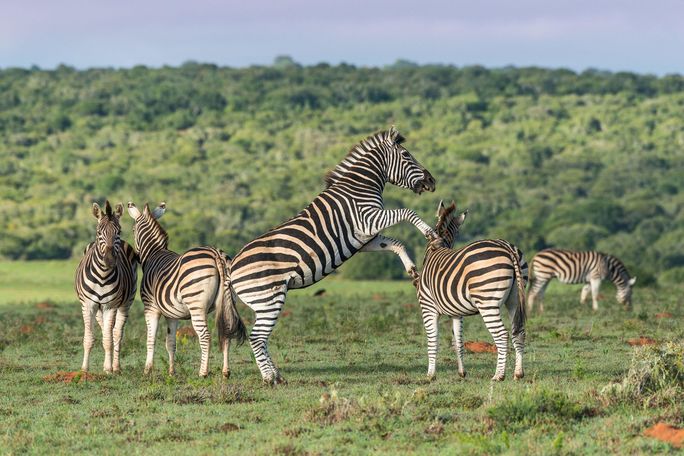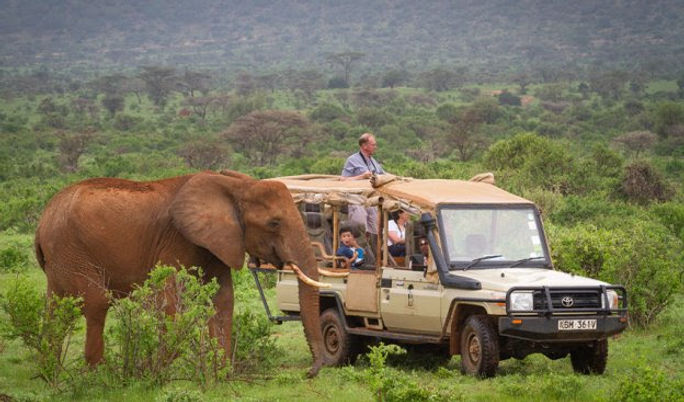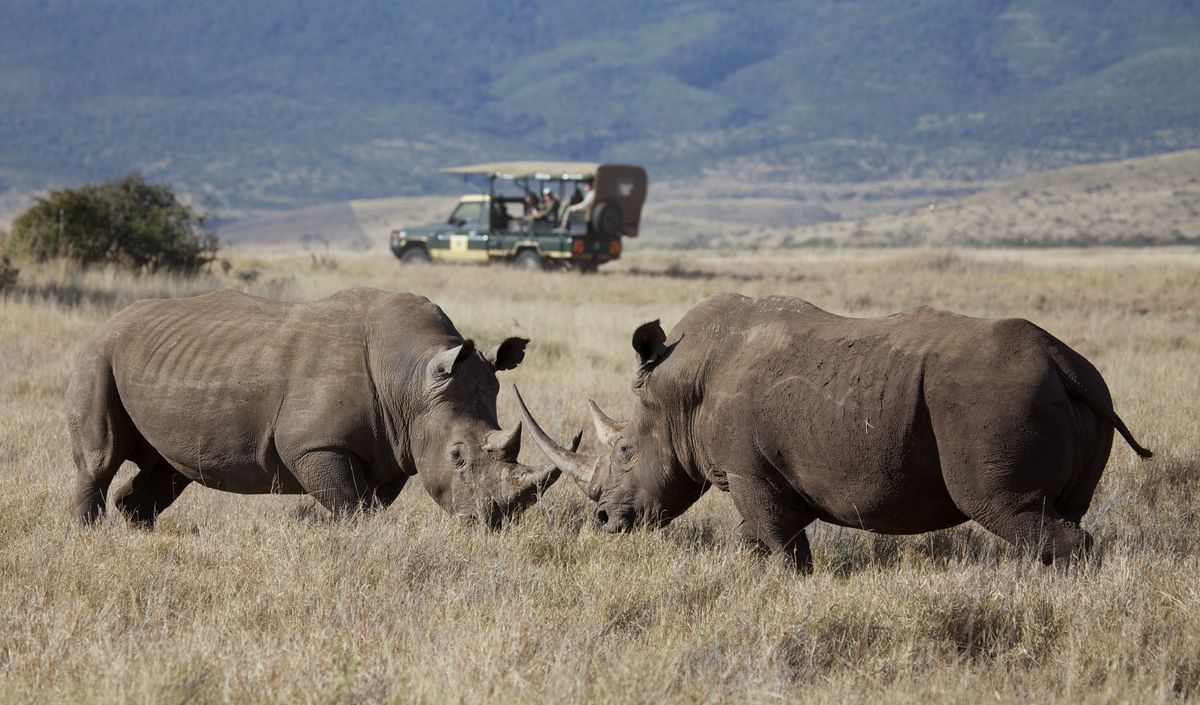African Travel, Inc. (ATI), The Travel Corporation’s (TTC) luxury safari outfitter, is honouring Earth Month by announcing its continued commitment to promoting ethical wildlife experiences and sharing responsible practices with clients to help create a healthy planet.
ATI is highlighting three key areas where clients can make a positive impact on wildlife conservation and the protection of habitats while enjoying an immersive African safari adventure. These include supporting conservancies and their community-centric initiatives, understanding the impact of geotagging endangered wildlife, and choosing reputable travel companies with an animal welfare policy.
“Our Earth Month initiative is to continue to raise awareness about protecting Africa’s wildlife and their natural habitats while ending poaching and wildlife trafficking, especially the African black rhino, which is the most critically endangered animal on the continent,” says Sherwin Banda, President of African Travel, Inc.
“For the past 10 years, ATI has had a well-established animal welfare policy and has been supporting the preservation efforts of leading conservancies while educating our guests. When clients make conscious choices and prioritize ethical practices by travelling with reputable safari outfitters, they become an integral part of the conservation effort,” he adds.
African Travel, Inc., as part of its 5-year sustainability strategy, How We Tread Right and in collaboration with leading wildlife organizations, takes great pride in supporting wildlife conservation and community development initiatives through its TreadRight Foundation, TTC’s not-for-profit, and through its ‘MAKE TRAVEL MATTER’ Experiences.
Every ATI journey features these conscious travel experiences, and when guests participate, they leave a positive impact on the places, people and wildlife inhabiting these places. Clients can use TreadRight’s 2024 MAKE TRAVEL MATTER® Checklist as a guiding tool to travel sustainably.

Viewing zebra on an African Travel, Inc. safari. (Photo Credit: African Travel Inc.)
Here are three ways clients can practice responsible wildlife excursions on their next safari journey:
Supporting Leading Wildlife Conservation Partners
Private reserves in Africa are working to enhance Africa’s ecosystems, investment in community livelihoods and wildlife. Clients can contribute to the preservation of endangered species by choosing safari outfitters that support and promote these conservancies and reserves. For example, in Northern Kenya, guests can experience the successful conservation efforts of Lewa Wildlife Conservancy, East Africa’s first private and largest rhino sanctuary, on ATI’s 12-day World’s Greatest Show & Safari. During a guided bush walk, visitors can spot the black and white rhinos in the area, go behind the scenes to see Lewa’s renowned tracker dog unit and learn how the rangers use state-of-the-art technology to monitor the rhinos that roam the park. Due to effective conservation efforts and tourism contributions, the black and southern white rhino population in Lewa has grown by 38%.
Not Geotagging Endangered Wildlife
While on safari, guests post photos of animal encounters on social media sites, not realizing that embedded within the post or the image is a geotag containing the GPS location of endangered wildlife such as elephants, rhinos and big cats. Poachers use this location data to track valuable animals for poaching. On the 8-day Under Kenyan Skies safari, clients spend a day with East Africa’s first all-female anti-poaching unit. Guests can observe a dog sniffing demonstration, which showcases how these highly trained bloodhounds are able to track poachers to protect the 57,000-acre conservancy and its precious wildlife. African Travel, Inc. shares tips on disabling geotagging to allow guests to protect and preserve wildlife while enjoying its beauty.

Up close and personal on an African Travel, Inc. personal safari. (Photo Credit: (photo via African Travel Inc.))
Animal Welfare Policy
According to World Animal Protection, over half a million wild animals suffer in tourist entertainment venues globally. In 2014, TTC established an Animal Welfare Policy in partnership with World Animal Protection and updated it in 2020 to ensure that all wildlife experiences meet the approved guidelines of animal welfare based on the Five Domains of Animal Welfare – nutrition, environment, health, behaviour, and mental state. Clients can learn about Shamwari Game Reserve’s great conservation projects on the 10-day South Africa’s Natural Wonders. African Travel, Inc. actively supports these preservation efforts by making donations on behalf of each guest visiting the conservancy.











